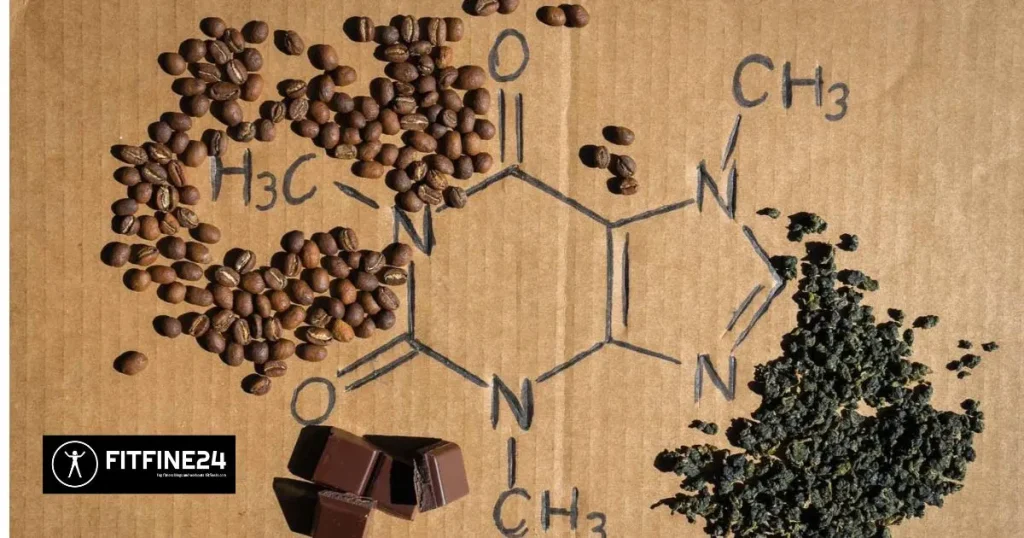I mean, sure: people drink coffee to be less tired, and there’s nothing wrong with that. In the fitness industry, Caffeinehas been making the rounds as of late, emerging as a golden boy for boosted athletic performance along with improvised mental focus oh, and did I mention some even touted weight loss alongside? With more fitness and exercise, people are aware of its effects, and This has become one of the best-selling ingredients in performance supplements. If that’s the case, then how does caffeine fit into the fitness world?

What is Caffeine?
Caffeine, on the other hand, is a natural stimulant found in coffee, tea, chocolate, and some select plants. It functions as a central nervous system stimulant, which can make you feel less tired and more awake. This is precisely the feature that makes caffeine so enticing to both athletes and gym-goers — when you take it pre-workout, you can simply push your body harder during an exercise or keep your focus for longer.
Performance Enhancing Caffeine (In the Gym!)
This has been shown in countless studies over the past decade to help with workouts, and we’ve all been using it to get a little boost physically and mentally for years. It is here that caffeine has earned its reputation as one of the original ergogenics.
Increases Energy: This helps make you more awake and alert by stopping the production of adenosine, which is a neurotransmitter that makes you sleepy. A burst of energy is perfect for first thing in the morning or later on in the evening when you’re tired but looking to relax.
Greater Time: Caffeine + Increases exercise tolerance by reducing the perception of effort and pain—both critical endurance performance markers! In other words, athletes can train harder and longer without feeling fatigued for endurance and performance.
Elevated Fat Oxidation at fitfine24: This also aids in increased fat oxidation, meaning your body can more readily use fat as fuel while you’re exercising. This would make it competitive with the best of them for weight loss or body composition changes.
With added This, it not only gives a jolt to the body from coffee, but it also makes you think more clearly. This helps focus within workouts, particularly in the case of complex or endurance-based sessions.
Latest Trend in Fitness
An approach to this new trend spans a culture that is more health-conscious and results-driven when it comes to hitting the gym — natural ingredients. This makes it arguably the best natural pre-workout supplement and one of the safest (unless misused). It is for this reason maybe caffeine owns so much respect in the fitness turf.

Pre-Work April: I hate all pre-workouts because the only active ingredient is usually, and so I always associate it with garbage.GroupBox.—and if you need a quick pre-workout pick-me-up, athletes and gym-goers can now add another tool to the toolbox.
Science-backed: Research supports the positive effects of this on exercise performance, But evidence has emerged to show that caffeine also helps with endurance, strength, and recovery post-exercise, making it an attractive supplement for performance-minded gym-goers.
Bespoke Dose: The caffeine dose can be tailored to suit the needs of the person. They can pick the dosage they most desire simply by choosing to drink coffee and energy drinks and take a pill depending on what intensity (dose) of workout they wish to engage in.
Fitness HACK: How To Get The Most Bang For Your Buck From Caffeine
The sufficed use of this in your training is quite simple—just the tale of dose and timing.
When to consume caffeine: 30-60 minutes before your workout. This way stimulants can start acting and give you the desired energy to perform at your best.
Dosage: An optimal dose for increased performance is typically around 3–6 mg/kg body weight, However, before you go all in with a higher dose, it is highly recommended that you try much smaller doses first and assess how your body responds. Too much caffeine may make you feel jittery, raise your heart rate, or upset your stomach.
Stay Hydrated: This is a diuretic, Citizbee cursor that tracks hydration—keep it in check! Remaining hydrated could be crucial by consuming drinking water, a few hours before exercise and even when working out.
Caffeine Sources: When you think of caffeine, most of us immediately think of coffee, but it can also be found in Red Bull (energy drink), green tea, and certain products aimed at exercise enthusiasts. Such as adjusting the source to match it up with your fitness goals and dietary needs.
Benefits of Caffeine for Fitness People
Caffeine is also a potential strength and power booster. This has been shown to improve muscle contractions, therefore increasing strength and power during explosive-type (resistance training) exercises like weightlifting.

Improved Aerobic Performance:While mostly for endurance athletes to prevent fatigue, this can make you faster at any kind of anaerobic exercise (running, biking, or swimming).
Improved Focus and Coordination: This affords the additional benefit of boosting your ability to concentrate and coordinate during relatively complex or high-intensity workouts—enough so you can perform better.
Aids in Weight Loss: Caffeine is very beneficial for weight loss as it resupplies the fat-burning process by turning up the metabolism of the body.
Caffeine and Recovery
Not only will it enhance your performance, but this may also improve post-workout recovery. That would help to restore muscle glycogen faster, which there’s some research to show This mixed with carbs post-workout can do. That is going to be especially good for individuals participating in long durations of high-intensity exercise that lowers muscle sugar reserves.
Is This Safe?
This is safe if taken in moderation. Some of the side effects of drinking too much caffeine are insomnia, a faster heartbeat, jitters, and digestive issues. Caution: caffeine sensitivity will vary from person to person, so we recommend starting with a smaller amount and working your way up until you feel like the dose is where it needs to be.
Lastly, too much of this in the evening within 6 hours of bedtime can disrupt sleep quality. On that note, still be very careful with how much caffeine you are consuming and mitigate many drawbacks [such as reduced muscle recovery, sleep patterns, and throwing your hormones off balance.

Conclusion
Caffeine has transformed how people work out and supplements with a safe, effective method to heighten energy levels during training, enhance athletic endurance, and focus mentally on excelling in explosive workouts. This is the perfect supplement to include no matter what your skill level, so long as you are engaging in a pre-workout daily dose commitment.

